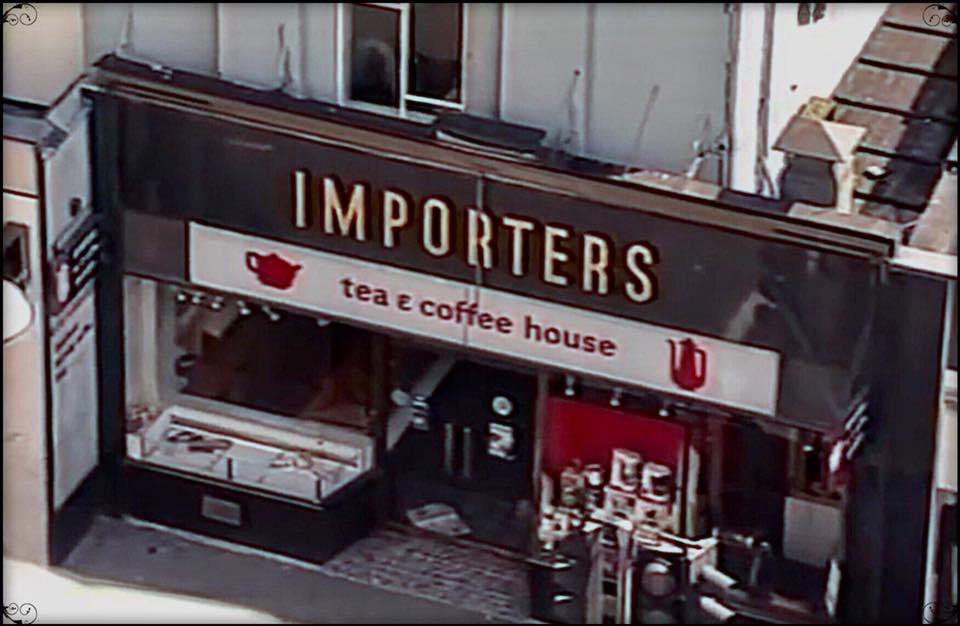- Home
- Local History
- The Coffee Shop
The Coffee Shop
Written by Pam Preedy.
We all have our favourite coffee shop. Which is yours? Starbucks, Costa or one of the speciality coffee emporia? They are proliferating everywhere.
Coffee shops are ‘popping up’ throughout the Bromley borough. In the last few months three new shops have opened up in Bromley; Gail’s, Bread Ahead and the Black Sheep Coffee shop, have opened in the pedestrianised area near the Metro Bank in Bromley, often next door to established shops such as Café Nero and Pret. In Beckenham the shops along the High Street from Beckenham Junction Station, opposite St George’s Church, is a mecca for them.
Once you arrive at the venue of choice you are faced with further choices: Americano, latte, cappuccino; with or without caffeine. Then, there is the variety of milks: oat milk, various nut milks including coconut and hazel. They try to please all tastes. From Beckenham to Bromley, Orpington to Petts Wood and Chislehurst, wherever two or three shops come together, there is likely to be a shop selling coffee.
Coffee can be traced back through the centuries to the ancient coffee forests of the Ethiopian plateau. There are various stories about how the coffee bean gained Kudos for its energy-giving qualities and, when turned into a drink in a monastery, would sustain the monks through long hours of evening prayer.
Gradually the popularity of coffee made its way north and east to the Middle East. The first coffee house is thought to have opened in 1550 in Constantinople (Istanbul), poised to enter Europe and ultimately England. Coffee houses became taverns without the alcohol and provided social activities, such as conversation, and listening to music and watching various performers, but most of all to keep up with the current news. There were those, such as a Venetian clergyman, who dubbed it the “bitter invention of Satan” in 1615. Pope Clement VIII decided to taste it and found it so satisfying that he gave it papal approval.


Coffee houses in Constantinople became important centres for the exchange of information and became known as “Schools of the Wise.” In England they were known as “penny universities” because, for the price of a penny, one could purchase a cup of coffee and engage in stimulating conversation. By the middle of the 17th century, it was seen that the quality of the work improved by those who had switched from tea to coffee. there were over 300 coffee houses in London, many of which attracted like-minded patrons; merchants, brokers and artists. Many businesses grew out of the Edward Lloyd Coffee House. It was also a place for spies to hear ‘interesting pieces’ of information for their spy-masters because the patronage was fluid and there was plenty to overhear.
In 1714, the Mayor of Amsterdam presented a young coffee seedling to King Louis XIV which was planted in the Royal Botanical Gardens of Paris. In 1723, a young naval officer Gabriel de Clieu received a seedling and braved horrendous weather, a sabotage attempt to destroy the seedling and a pirate attack to get it to Martinique where it thrived, and is thought to have led to the proliferation of over 18 million trees.
At first the Americans favoured tea, but in 1773 the colonists revolted against the heavy tax on it – the Boston Tea Party. they quickly changed their habits. Thomas Jefferson (3rd American President 1801 – 1808) referred to “Coffee: the favourite drink of the civilised world.”
It is interesting to look at the popularity of coffee in Bromley & Beckenham areas. The Bush Directory (Street) Directory for 1900 records two Coffee Taverns and five Coffee Houses: in Chatterton Road, East Street, Simpsons Road and Palace Road, often run by ladies and therefore not considered a commercial venture.
By 1924 Kelly’s Directory recorded only two: Chatterton Road and Palace Road. By the 1940s, there were only two real coffee shops in Bromley, Wilsons (Above Robert Dyas) and the Importers Retail Salesroom Ltd ( now Carpet Right).
The 1902 Thornton’s Directory for Beckenham records a Mrs Alleeson’s coffee rooms at 42 Chancery Lance. By 1911 she had clearly branched out and expanded into 13a Wickham Road. In 1902 Henry Clarke was running a coffee tavern at 55 Parish Lane as was George Heard at 17 Croydon Road, Elmers End. By the 1911 the popularity of coffee shops, it seems, had dwindled.
However, the coffee habit is again becoming increasingly popular, brought into Britain from America. It’s a place to socialise with friends, conduct work meetings, read, buy snacks and choose ‘eat-in’ or ‘take-way’ refreshments!


Originally published in Life in Bromley magazine (Issue 23, January 2024)
